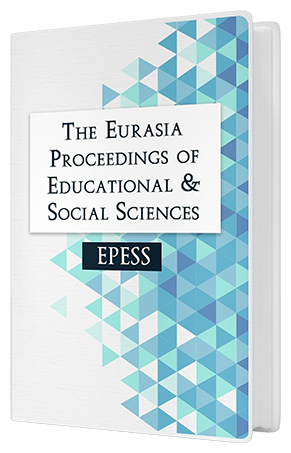TRANSITION FROM TRADITIONAL LESSON TO CONSTRUCTIVE LESSON, IE. TRANSITION FROM TEACHING TO LEARNING
Keywords:
Constructive learning, pragmatism, creation, evaluation, Blooom’s taxonomy, theory of learning, teaching theoryAbstract
At the beginning of the 21st century, educational system in Azerbaijan was reconstructed and modernized. The usage of innovative teaching technologies, ICT and pedagogical technologies, the application of active, project, problem and constructive teaching are considered one of the essential issues. New pedagogical studies should be carried out in order to solve these problems and to find out their being effective. In the traditional way of teaching which was applied for centuries, the teacher was required to transfer knowledge and the students were required to remember and apply their knowledge properly.The traditional way of teaching was based on pragmatism - one of trends of the education philosophy ie. the teacher was in the center of the teaching process, the pupils were acquiring knowledge passively, teacher-student relations were like subject-object. Therefore, it is right to abandon traditional way of teaching completely because it is a teaching theory and in this teaching process which is based on theory mental skills of cognition such as knowledge, comprehension, and application are improved. If we want to train a high-thinking personality according to the requirements of the technological community, we must build up the training process on the principles teaching theory together with the principles of learning theory.Together with memory, application, comprehension, we must improve the highest level of thinking: That is, we have to put into practice the analysis, creation and evaluation mechanisms which are considered the highest levels of cognition. When we attach much importance to the mental acttivities such as analysis, creation, and evaluation in addition to the knowledge at the lesson, the traditional lesson is transformed into an innovative – constructive lessonDownloads
Published
Issue
Section
License
Copyright (c) 2017 The Eurasia Proceedings of Educational and Social Sciences

This work is licensed under a Creative Commons Attribution-NonCommercial-ShareAlike 4.0 International License.
The articles may be used for research, teaching, and private study purposes. Any substantial or systematic reproduction, redistribution, reselling, loan, sub-licensing, systematic supply, or distribution in any form to anyone is expressly forbidden. Authors alone are responsible for the contents of their articles. The journal owns the copyright of the articles. The publisher shall not be liable for any loss, actions, claims, proceedings, demand, or costs or damages whatsoever or howsoever caused arising directly or indirectly in connection with or arising out of the use of the research material. All authors are requested to disclose any actual or potential conflict of interest including any financial, personal or other relationships with other people or organizations regarding the submitted work.




